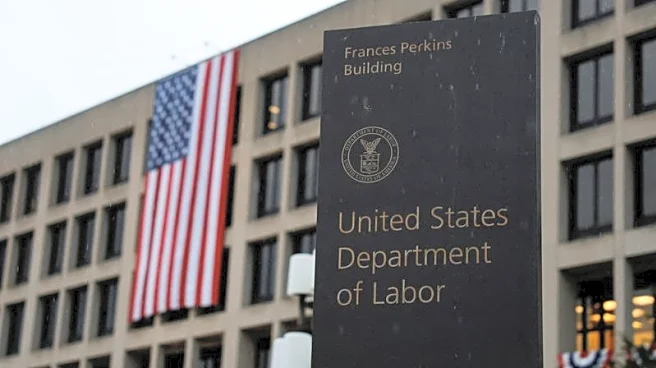What's Happening?
A Huntington Beach woman, Tae Miyaji Jones, has pleaded guilty to embezzling approximately $2.8 million from a Garden Grove-based instant noodle company. Jones, who worked as an account manager for the company, admitted to transferring funds from corporate accounts to her personal accounts over a period from 2017 to July 2023. The embezzled money was used to pay for personal expenses including home mortgages, jewelry, car loans, and credit card debt. Jones also manipulated records to conceal the theft. As part of her plea agreement, she has agreed to surrender stolen goods such as jewelry and designer bags, as well as properties in Madison, Alabama, and Waikoloa, Hawaii. She is scheduled for sentencing on April 6.
Why It's Important?
This case highlights significant vulnerabilities in corporate financial management and the potential for internal fraud. The embezzlement of such a large sum over several years underscores the need for robust financial oversight and auditing processes within companies. The impact on the instant noodle maker could be substantial, affecting its financial stability and operations. This incident serves as a cautionary tale for businesses to implement stringent checks and balances to prevent similar occurrences. The legal consequences faced by Jones also emphasize the seriousness of financial crimes and the judicial system's role in addressing corporate fraud.
What's Next?
Jones is set to be sentenced on April 6, where she could face significant penalties including prison time, fines, and restitution. The company affected by the embezzlement may need to reassess its financial controls and consider legal action to recover losses. This case may prompt other businesses to review their internal financial procedures to safeguard against similar fraud. Stakeholders, including employees and investors, will likely be monitoring the situation closely to understand the broader implications for the company's future.
Beyond the Headlines
The ethical implications of this case are profound, as it raises questions about trust and integrity within corporate environments. The long-term impact on the company's reputation and employee morale could be significant, necessitating efforts to rebuild trust and ensure transparency. Additionally, this case may influence regulatory discussions on corporate governance and the need for enhanced fraud detection measures.











